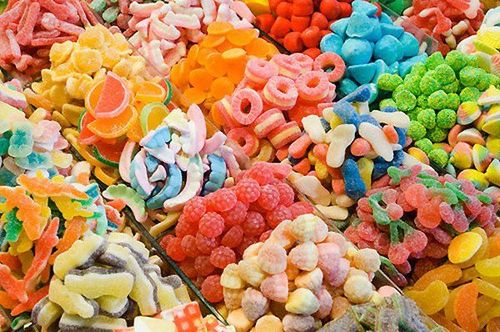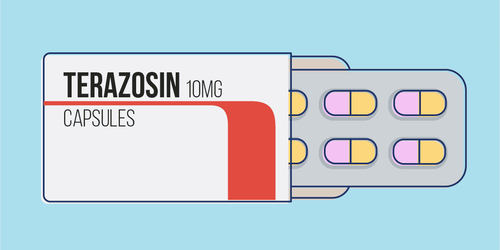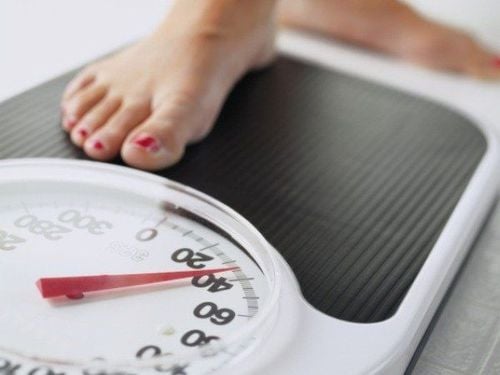This is an automatically translated article.
Losing weight is a process, and one that doesn't always happen as quickly as you'd like. While healthy weight loss can take time, there are reasons why you may not be able to lose the weight you want. There are many things that can affect weight loss, here are 20 common reasons why you are not losing weight.Normally when we lose weight, the body will resist this change. As a result, a person can initially lose quite a bit of weight without much effort. However, weight loss can slow down or stop altogether after a while. Here are the common reasons why weight loss fails.
1. Maybe we're losing weight without realizing it
If you think you're going through a weight loss process, don't worry. It is extremely common for the weight to stay the same for several days (or weeks). This does not mean that the body does not lose excess fat. Body weight tends to fluctuate in the range of a few kilograms. It depends on the food we are eating, hormones can also have a big effect on how much water the body retains (especially in women). In addition, we can gain muscle at the same time as losing fat. This is especially popular with exercise beginners. This is a good thing, since what we really want to lose is body fat, not just weight.2. Not keeping a close eye on what you're eating
Awareness is extremely important for someone trying to lose weight. Many people don't know how much they actually ate. Studies show that tracking your diet helps with weight loss. People who used food diaries or took pictures of their meals more often lost weight than those who didn't.3. Not eating enough protein
Protein is the most important nutrient in weight loss. Eating protein with 25-30% calories can boost metabolism by 80-100 calories per day and make us automatically eat several hundred fewer calories per day. It can also significantly reduce cravings and cravings for junk food. This is partly due to protein's effect on appetite-regulating hormones, such as ghrelin and others.We should get enough protein in breakfast. Studies show that people who eat a high-protein breakfast are less hungry and have fewer cravings throughout the day. A high protein intake also helps to boost metabolism in the body. In addition, it also helps prevent weight gain again.
4. Eating too many calories
A large number of people have trouble losing weight simply because they eat too many high-calorie foods. Many people may read this information and dismiss it thinking they are not eating that many calories, but keep in mind that studies consistently show that people tend to underestimate their calorie intake. significantly.If you have tried to lose weight but failed, you should try weighing foods and tracking calories for a while. This is important if you're trying to hit a certain nutrient goal, such as getting 30% of your calories from protein. This may not be possible if you don't keep track of everything properly.
SEE ALSO: Refer to the 1000 calorie diet menu

Một số lượng lớn những người gặp khó khăn trong việc giảm cân chỉ đơn giản là bởi họ ăn quá nhiều những thực phẩm giàu calo
5. Don't Eat Whole Foods
Food quality is just as important as quantity. Eating healthy foods can improve our health and help regulate our appetite. These foods tend to be much more satiating than processed foods.Please note that many processed foods labeled as "health foods" are not actually healthy. Eat whole, single-ingredient foods as much as possible.
6. Not doing endurance training regularly
One of the most important things we can do when it comes to weight loss is to do some form of endurance training, such as lifting weights. This can help the body maintain muscle mass, which is normally burned with fat if we don't exercise. Lifting weights can also help increase metabolism and ensure that our bodies stay toned and muscular.7. Overeating (even with healthy foods)
Binge eating is a common side effect of the diet. It involves quickly eating large amounts of food and often more than the body needs. This is a remarkably big deal for many dieters. Some people indulge in junk food, while others indulge in relatively healthy foods, including weight-loss nuts, seeds, nut butters, dark chocolate, and cheeses. , etc.Even if something is healthy, its calories count like other foods. Depending on the volume, one drink can often ruin an entire week of dieting.
8. Don't do aerobics
Cardiovascular exercise, also known as aerobics or aerobic exercise, is any type of exercise that increases a person's heart rate. It includes workouts like running, cycling, and swimming. Aerobic exercise is one of the most effective ways to improve the health of everyone. It is also very effective at burning belly fat, the harmful “visceral” fat that accumulates around the organs of the body and can cause disease.
Tập thể dục nhịp điệu là một trong những cách hiệu quả nhất để cải thiện sức khỏe của tất cả mọi người
9. Drink lots of sugary drinks
Sugary drinks are among the most fattening items in the food supply. Our brains don't make up for the calories in them by making us eat less of other foods. This isn't just true of sugary drinks like Coke and Pepsi – it also applies to what many consider "healthier" drinks like Vitamin water because it's also high in sugar.Even fruit juice is an option to consider and should not be consumed in excess. A glass of fruit juice can contain the same amount of sugar as a few pieces of fresh fruit.
10. Bad sleep
Good sleep is one of the most important factors for our physical and mental health, as well as our weight. Studies show that poor sleep is one of the biggest risk factors for obesity. Adults and children with poor sleep were 55% and 89% more likely to be obese, respectively.11. Don't Cut Carbohydrates
For people with obesity or metabolic problems such as type 2 diabetes or prediabetes, they may consider adopting a low-carb diet. In recent studies, this type of diet has been shown to result in 2-3 times more weight loss than the commonly recommended standard "low-fat" diet.A low-carb diet can also improve many metabolic markers, such as triglycerides, “good” HDL cholesterol and blood sugar, and many other important markers and indicators.
12. Eating too often
It is mistakenly believed that people should eat several small meals each day to boost metabolism and lose weight. Studies have actually shown that meal frequency has little or no effect on fat burning or weight loss. In addition, preparing and eating food all day is also inconvenient because it makes healthy nutrition much more complicated.On the other hand, an effective weight loss method known as intermittent fasting is based on deliberately not eating for long periods of time (15–24 hours or more).
13. Not drinking enough water
Drinking water can help with weight loss. In a 12-week weight loss study, people who drank half a liter of water 30 minutes before a meal lost up to 44% more weight than those who didn't.Drinking water has also been shown to increase the number of calories burned by 24 – 30% over a 1.5 hour period

Uống nước có thể giúp giảm cân
14. Drinking too much alcohol
If you are a drinker but want to lose weight, it is best to use strong alcohol (such as vodka) mixed with zero-calorie drinks. Beer, wine and other alcoholic beverages are often very high in calories. Also keep in mind that alcohol itself is also high in calories, about 7 calories per gramHowever, studies on alcohol and weight have shown mixed results. Moderate drinking seems to promote weight loss and weight maintenance, while heavy drinking is associated with weight gain
15. Not paying attention to eating
A method known as "mindful eating" may be one of the most effective weight loss tools in the world. This method is based on slowing down, eating without distractions, savoring and enjoying every bite of food, and listening to natural signals that tell the brain when its body is out. full enough. Many studies have shown that focusing on eating can lead to significant weight loss and reduce the frequency of binge eating. Here are some tips to help us focus more on eating:Eat without distractions, sit at the table with only our food. Eat slowly and chew thoroughly. Try to recognize the color, smell, taste, and texture of each dish. When you feel full, immediately stop eating and drink some water.
16. Certain medical conditions can make it difficult to lose weight
There are a number of medical conditions that can contribute to weight gain and make it much more difficult to lose weight. These problems include hypothyroidism, polycystic ovary syndrome (PCOS), and sleep apnea.Some medications can also make it harder to lose weight, or even cause weight gain. If you think any health problems or medications you're taking are causing you to gain weight or keep it off, talk to your doctor about options you can make.
17. Addicted to junk food
According to a 2014 study, about 19.9% of people in North America and Europe meet the criteria for food addiction, specifically junk food. People with this problem use junk food in a similar way to drug addicts who use drugsIf you are a junk food addict, simple methods are to eat less or change your diet. Diet is completely impossible.

Nếu là một người nghiện đồ ăn vặt, thì những phương pháp đơn giản là ăn ít hơn hoặc thay đổi chế độ ăn là điều hoàn toàn không thể
18. Follow the diet for too long
Maybe you shouldn't "diet" for too long. If you've been losing weight for months and have reached a steady state, you may just need a break. Increase your calorie intake by a few hundred extra calories per day, get more sleep, and regularly practice strength, endurance, and fitness exercises. Aim to maintain body fat levels for 1-2 months before starting to try to lose weight again.19. Set unrealistic goals
Weight loss is generally a slow process and requires persistence. Many people lose patience before reaching the end goal. Although it is often possible to lose weight quickly at first, very few people can continue to lose weight at a rate of more than 2 - 3 kg per week.Another big problem is that quite a few people have unrealistic expectations of what can be achieved with a healthy diet and exercise. The truth is, not everyone can be like a fitness model or bodybuilder. The photos we see in magazines and elsewhere are often overly flattering.
If you've lost some weight and feel satisfied with yourself, but the weight just doesn't seem to be going any further, maybe you should start accepting your body. At some point, your weight will reach a stable level that your body is most comfortable with. Trying to get through that may not be worth your effort, and may even be impossible for you.

Giảm cân nói chung là một quá trình diễn ra chậm và đòi hỏi sự kiên trì
20. Too focused on dieting
Diets almost never work in the long run. If anything, studies do show that dieters gain more weight over time. Instead of approaching weight loss from a diet mindset, make it your primary goal to become a happier, healthier person with a more ideal body.Focus on replenishing the body and letting weight loss happen as a natural side effect.
Losing weight is not always easy and there are many factors that can make it impossible for us to lose weight successfully. At the most basic level, weight loss failure occurs when calorie intake equals or exceeds calorie intake. If you want to lose weight, try different methods from mindful eating to keeping a food diary, eating more protein to doing strength training exercises. Ultimately, weight and lifestyle changes require effort, self-discipline, perseverance, and resilience on each of us.
Please dial HOTLINE for more information or register for an appointment HERE. Download MyVinmec app to make appointments faster and to manage your bookings easily.
References: healthline.com, womenshealthmag.com












